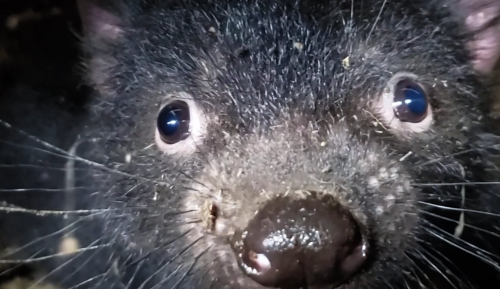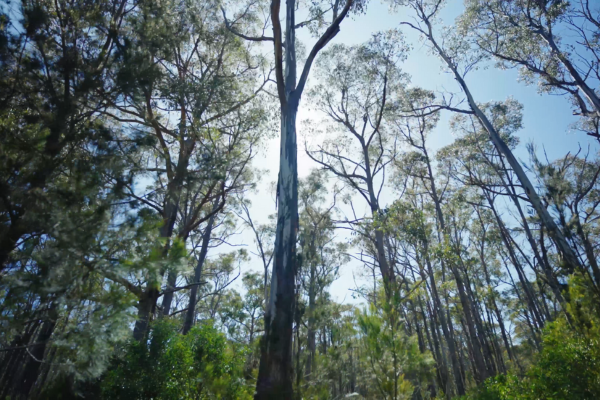Sustainable farming: caring for the land while producing food
Matt believes that truly understanding the land leads to better care and long-term sustainability. He and his wife, Vanessa, manage their farm with this philosophy in mind. The approach they, and the generations before them, have taken to livestock farming and land use has ensured the health and productivity of their farm for over a century.
How do farmers balance livestock farming and environmental care?
"The environment is a really special part of everything that we do here... it’s actually the core of the reason we do all this," says Vanessa.
At Bangor Farm, the Dunbabins dedicate over 5,000 hectares to forest and native pastures, enhancing biodiversity and ecosystem health. Their sustainable land use strategies include:
- Reserving 2,000 hectares for Nature Conservation, protecting native flora and fauna.
- Supporting a thriving population of over 100 Tasmanian devils, helping conserve this endangered species.

Livestock farming and sustainability can work together
Matt and Vanessa’s approach proves that livestock farming and environmental conservation are not mutually exclusive. By integrating sustainable farming techniques, they ensure their land remains productive while preserving natural ecosystems.
Lessons from Bangor Farm
Matt and Vanessa Dunbabin are living proof that producing high-quality food does not have to come at the expense of the environment.
By prioritising both livestock farming and environmental conservation, they showcase how a balance between food production and land stewardship is not just possible—it’s essential.



